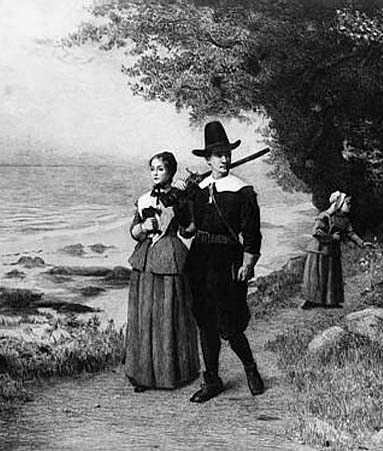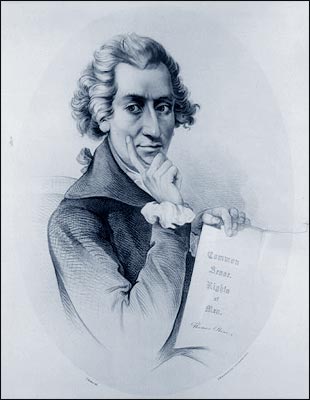
English 48A
11/24/09
Bradford Journal
Book Quote:
“Morton, thinking himself lawless, and hearing what gain the French and fisherman made by trading of pieces, powder, and shot to the Indians, he as the head of this consortship, began the practice of the same in these parts; and first he taught them how to use them, to charge and discharge…” (127).
Online Quote:
"America was seen as a place where they could begin new lives in a colony centered on God and governed in an honorable manner. By creating their own laws as they felt were needed, they allowed themselves the freedoms they did not see in England."
-Associated Content
Summary:
Bradford’s Manuscript begins with notifying us they had another ship before the Mayflower, the Speedwell, however was not suitable enough for travel so ended up getting the Mayflower. They are on the ship, they are having seasickness, and only one unpleasant man dies from a disease and is thrown overboard. They arrive in Cape Cod instead of Virginia. They find Native food while looking for water. They settle in Plymouth, Massachusetts. They Natives stay away from them but watch the puritans. Winter comes as the Puritans run out of supplies and half the population dies from diseases. They do meat Squanto who is a Native but speaks English. He teaches them how to live there; he saves them from starvation. Years pass before more settlers come but have a different idea of life. They are not Puritans and are giving power to the Natives, guns. Morton, the leader of the group is later forced out. Besides having a different belief from the Puritans he was a threat to their safety by showing the Indians they could have more power than them, they could over-run the Puritans should they choose to.
Bradford never states he and the other puritans were trading giving guns to the Indians so I will assume not. Guns are more effective than bows and so they felt more protected in being the only on
 e with guns. These are one of the major reasons why they wanted Morton out as he was giving the Natives guns. This made the puritans more in danger. They must have already seen they were not given the guns for any reason other to train them and for them to do the main fighting’s. If not to kill each other’s tribe than to kill the puritans who are already settled there. The Puritans were already in small numbers because of the cold winter that killed half of the population; they were in danger of being cleaned out entirely and it would have been the Native’s gun supplier’s fault, Morton.
e with guns. These are one of the major reasons why they wanted Morton out as he was giving the Natives guns. This made the puritans more in danger. They must have already seen they were not given the guns for any reason other to train them and for them to do the main fighting’s. If not to kill each other’s tribe than to kill the puritans who are already settled there. The Puritans were already in small numbers because of the cold winter that killed half of the population; they were in danger of being cleaned out entirely and it would have been the Native’s gun supplier’s fault, Morton.





